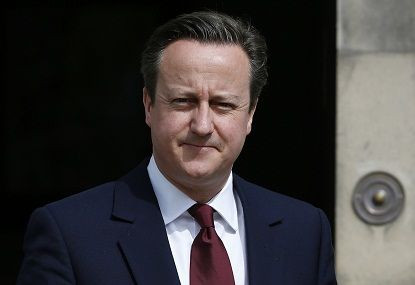UK Plans To Send Army Trainers To Iraq For Battling ISIS Militants

Britain is planning to send 125 army trainers to Iraq for enhancing the capacity of Iraq to fight the threat of Islamic State. This was announced by Prime Minister David Cameron while speaking at the G7 summit in Germany. Mr Cameron described the fight against ISIS terror as “the biggest challenge” faced by Britain and the international community.
Britain’s army personnel deployment is in response to a request from Iraqi prime minister Haider al-Abadi. According to Mr Cameron, the new reinforcements will make a total of 275 U.K. military personnel in Iraq, who are supporting the Baghdad government and Kurdish authorities in the fight against ISIS, which has seized large parts of Iraq and Syria.
From the new deployment, a bulk of the personnel will devote themselves to train local forces in detecting and dealing with roadside bombs and booby-trap explosives used by ISIS. Another group will focus on logistics.
Beyond Irbil
The new deployment by the U.K will be different from the reinforcements till date. While Britain’s mission in Iraq has been largely focused on the Kurdish capital Irbil, the new troops will get stationed in a number of bases that wil include capital Baghdad also. It is understood that the U.K trainers will remain inside bases and not get deployed in the field. The announcement came after Mr Cameron met president Obama in the margins of the G7 summit for one-to -one talks.
“We already have quite a number of people in the KRG (The Kurdish Controlled Area). These people will be helping more broadly in Iraq. It’s a particular request the Abadi government has made, it’s a particular thing we’ve been working with the Americans on. I think it’s the right thing for Britain to do.”, Mr Cameron said, according to the Independent.
Defence Spending
Meanwhile, Washington was worried about the U.K’s proposed slashing of defence spending that may drop below the NATO target of 2 percent of GDP. The U.S. Defence Secretary Ashton Carter cautioned that such a cut would suggest Britain was “disengaged” and could no longer “punch above its weight” on the international scene. Noting that the U.K. was one among the handful of NATO states that met the target, Carter said: “We need an engaged United Kingdom.”
Despite urging other leaders at NATO’s Wales summit in 2014 on the need to hit the two percent target in defence spending, Mr Cameron has so far declined to commit its continuance beyond March 2016. Mr Cameron also said in Germany that he has no assurance to offer the U.S President prior to the Spending Review that will see George Osborne setting the government’s spending goals for the three years beyond April 2016.
(For feedback/comments, contact the writer at k.kumar@ibtimes.com.au)





















